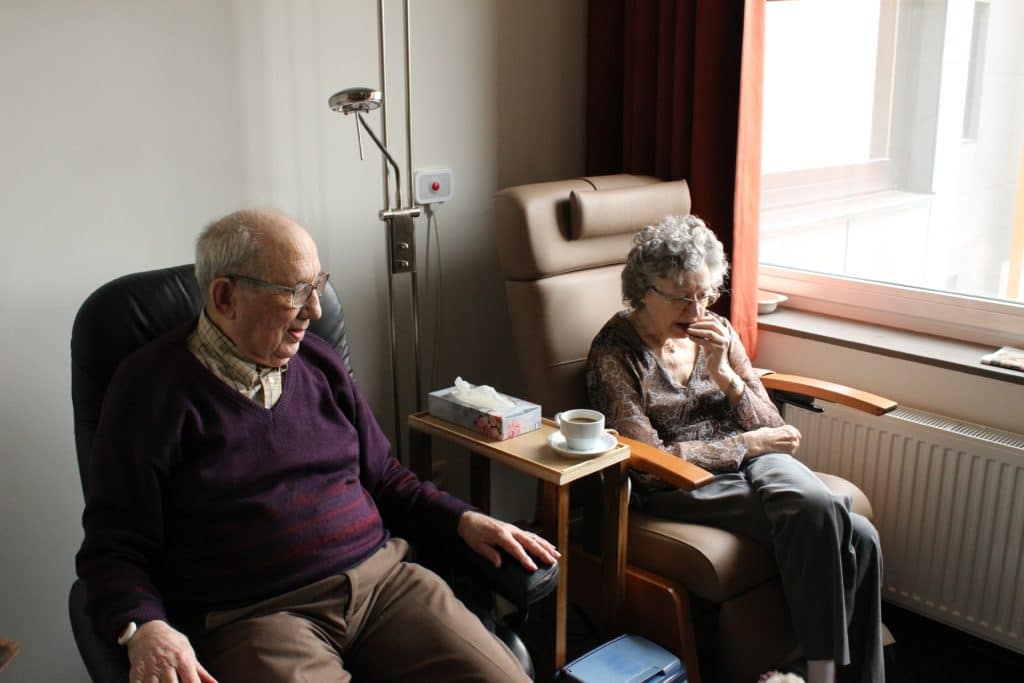Your elderly loved ones know the grave health risks attached to smoking. They’ve seen the ads, the horrific image of a smoker’s black lung, they’ve been told hundreds of times, but they just will not budge. What else can you do?
Of all the bad habits people succumb to, smoking is among the most insidious and common. It is widely understood that smokers are more susceptible than non-smokers to a plethora of diseases and complications, including stroke, coronary heart disease, and multiple cancers.
According to a research conducted by the University of Hong Kong and the Department of Health in 2014, one in every two elderly smokers (aged 65 or above) were killed by smoking-related diseases. While most elderly smokers are aware of the health hazards of the practice, quitting smoking is no easy feat for them, given that it has become such a deeply ingrained behaviour. Here are four tricks that will make that journey a little easier for you and your loved ones.
1) Ask questions, don’t offer more information
Oftentimes, we tend to encourage elderly smokers to quit by reminding them of the evils of smoking, which are facts they already knew but don’t want to think about. “When you’re trying to influence people who need motivation, but not information, don’t offer more information. That’s nagging,” Joseph Grenny, behavioral science researcher and the New York Times bestselling author, wrote in Psychology Today .
He said the best way to help someone take on a difficult change, in the case of smoking, is by adopting the motivational interviewing approach. The idea is that, by posing influential questions, we can “create a safe environment” where smokers can tap into the inner motivations they already have. Next time if you want to inspire behavioral changes, you might want to start by asking these questions:
- “What are the pluses and minuses of changing or not changing?”
- “If this change were easy, would you want to make it? What makes it hard?”
2) Get the timing right
Timing is crucial, especially in the early stage of smoking cessation. Not only do smokers have to endure the physical symptoms of nicotine withdrawal , they also have to overcome the psychological cravings for cigarettes, which can be triggered by everyday events in life, whether it be socialising, drinking, or when under stress.
If you were to help your loved ones beat their smoking habit, you should first identify the cues that signal the need for a cigarette. The best time to start quitting is when your loved ones are away from those triggers. If the elderly smoker is a stress smoker or a social smoker, it might not be the best idea to start their smoking cessation program over the holidays or during their busiest season.
3) Go cold turkey
The idea of quitting smoking abruptly can seem daunting, but researchers say it might lead to lasting smoking cessation.
A study published in Annals of Internal Medicine found that smokers who quit abruptly on a set quit date were significantly more successful at quitting smoking than those who tried to wean themselves off gradually. The study shows that the former group was 25% more likely to remain abstinent for half a year from the date that they quit than smokers who gradually cut back.
That said, going cold turkey may not be the right approach for everyone. It is best if both smokers and those around them gear themselves up for the withdrawal. When in doubt, consult a healthcare professional.
You might also like:
4 ways to help your stubborn parents kick their unhealthy habits
4) Come up with a plan to quit
Tailor-make a plan to quit based on your loved one’s smoking patterns. To quit smoking is a long-term, uphill battle. In order to win this, you must know what you are up against. Dr. Daniel Seidman, a smoking-cessation expert and author of Smoke-Free in 30 Days , identifies the six most common “types” of smokers and the obstacles they face in becoming permanently smoke-free.
Based on your observation and research, you can find nicotine replacement therapies best suits your loved ones’ needs. Here are some of the local resources you can draw on for additional support.
Don’t forget to enlist friends and family members in the plan. Someone who feels supported is more likely to quit smoking for good.
其他話題 Other Topics
最新的文章 Latest Posts

喜歡我們的文章嗎?
超過3,000位照顧者已經訂閱我們的資訊!訂閱我們的資訊,你可獲得免費護理工具、專家護理知識和同路人分享。立即訂閱,也可以隨時取消。請在此填寫你的姓名和電郵地址:


